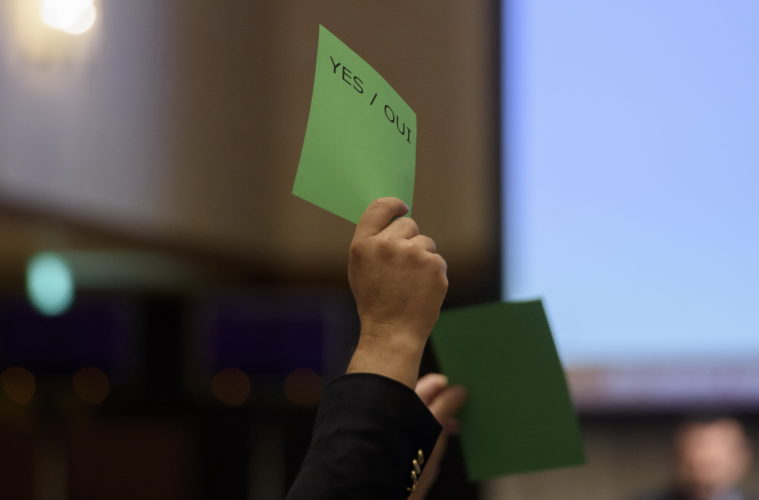The FEI announced this morning that during the General Assembly in Tokyo, Japan, the members voted overwhelmingly in favor of the proposed changes to the Olympic format, reducing team members from four to three, and eliminating the drop score. The ability to substitute a reserve combination will remain in place.
76 National Federations were on-site for the vote and 31 voted by proxy. 11 countries voted against the measure: Albania, Bulgaria, France, Germany, Latvia, Luxembourg, Monaco, New Zealand, the Netherlands, Romania, and Switzerland. Notably, many of the countries who voted against the measure are those who would theoretically most benefit from adding more national team slots.
There were also changes specific to Show Jumping which were proposed and passed Tuesday. These changes were unanimous:
-
Teams of three horse/athlete combinations per nation, plus one reserve combination, no drop score
-
20 teams (60 horse/athlete combinations)
-
15 slots for nations not qualified with a team (maximum one horse/athlete combination per nation)
-
Individual event will now take place before Team event
-
Cut-off score: the exact cut-off and resulting penalty will be finalised in the Olympic Regulations
-
The exact penalty for any horse/athlete combination that is eliminated, or does not complete their round for any reason, will be finalised in the Olympic Regulations
All of the proposed changes will now go to the executive IOC board for final approval over several meetings in 2017.
Three-member teams have been used at the Olympics before: The 1968 Olympic Games in Mexico City were comprised of three-member teams, and also had the distinction of being one of the most challenging show jumping courses in history. Will this usher in a new era in the sport, or prove to be a disastrous experiment?

